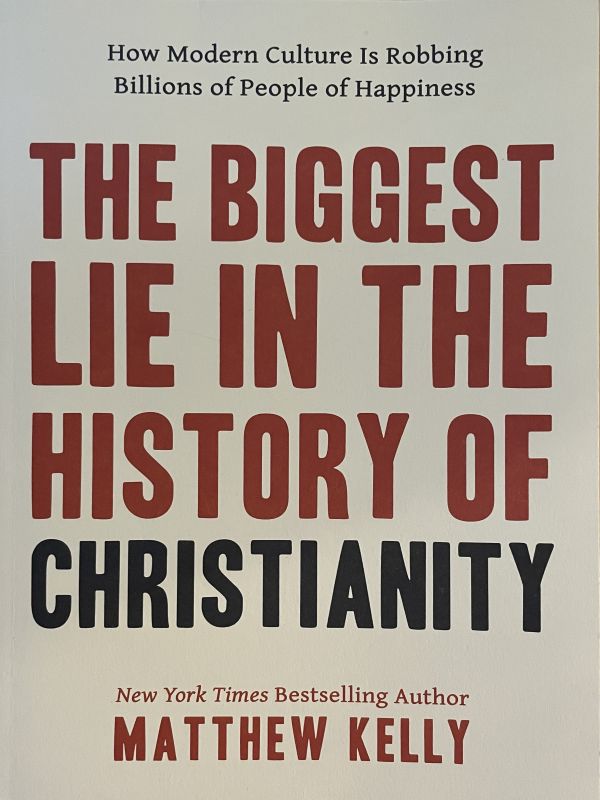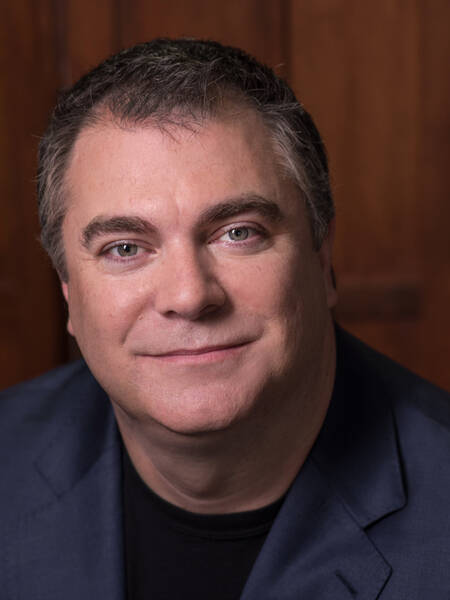


In The Biggest Lie in the History of Christianity, Matthew Kelly has a constructive and positive proposal for Christians.
High Point: Kelly’s concept of Holy Moments.
Low Point: The realization that American Christianity exhibits little interest in promoting something as positive as Kelly’s suggestions.
Author: Matthew Kelly
Publication Date: 2018
Genre: Religion
Project Gutenberg: Not available
LibriVox: Not available
Movie/TV Adaptation: None
In The Biggest Lie in the History of Christianity, author Matthew Kelly writes about what he maintains is a false assertion promoted by the “enemies” of Christians—the essence of which is that the decline of Christianity cannot be reversed.
Holy Moments
Despite that negative introduction, Kelly has a constructive and quite positive proposal for Christians. He introduces a concept he calls Holy Moments. Simply, they are small actions that help improve the physical, mental or spiritual wellbeing of yourself or those around you.
To illustrate, Kelly includes some examples. Control your temper even if you’re justified in losing it. Praise someone. Coach someone. Be patient with the person who drives you crazy. Recycle. Make a healthy eating choice. Ask God to lead and guide you.
Kelly suggests if Christians as individuals employ Holy Moments, their lives would change forever. And, he says, non-Christians will notice and be drawn to this positive behavior.
A United Christianity
He also encourages Christians everywhere to put aside their denominational differences long enough to focus on a common effort—something like ensuring no child goes to bed hungry. Kelly says the achievement of such an objective is well within the reach of a unified Christian community. And again, non-Christians will be drawn to these activities.
Kelly employs an informal writing style. Much of the time, the narrative comes across as a conversation over coffee. Other times, he resembles the preacher on the podium driving home a point with short staccato sentences and repetitive elements.
Toward the end of the book—after Kelly has made his chief points—the text becomes tedious. You may get the feeling he continues his sales pitch after he’s already made the sale. It’s a short book anyway, but it could have been shorter.
Despite that, Kelly makes his case. What he proposed in 2018 was doable. Unfortunately, Christians today seem more unified about condemning fringe groups, legislating behavior, establishing megachurches, and producing expensive extravaganzas than they care about fighting child hunger or producing Holy Moments.
What Kelly proposed was doable.
Quotes
| “If we came together as Christians, united as one force, regardless of our denominations or theological differences, and said, “Over the next ten years we are going to end child hunger in America,” we could do it. We would need to set aside our denominational and theological differences, but surely whatever those differences are, we can all agree that Jesus doesn’t want any child in the United States going to bed hungry tonight.” |
| “The first Christians captured the imagination of their age with their love. They took seriously Jesus’ directive that his disciples would be known by their love for another and their love for others.” |
| “It is striking to me as I read about the life of Jesus that he always seemed to deal with people’s human concerns and needs before he preached to them.” |
